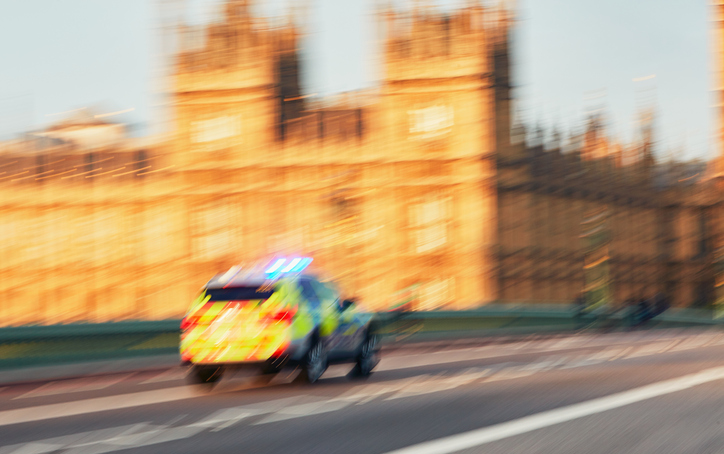
On 15 February 2017, the University of Liverpool School of Law and Social Justice and Broudie Jackson Canter sponsored a Symposium on the proposed Hillsborough Law, a bill that would require public bodies to tell the truth. The bill is supported by the families of the 96 unlawfully killed victims of the Hillsborough tragedy.
From the bill’s Explanatory Note:
“The Hillsborough Law aims to ensure that public authorities and public servants tell the truth and act with candour, especially with respect to court proceedings, inquiries and investigations. This will help public institutions and further the public interest by contributing to the creation of a culture of integrity and openness, rather than institutional defensiveness.”
It took 27 years for the families of the victims to achieve justice and the truth because of the South Yorkshire Police’s astonishing betrayal of the public trust. The SYP decided immediately, even as the disaster was still unfolding, to conspire to protect themselves by blaming the fans for their own deaths. We now know that this lie was spread to the government and the media in order to hide the police’s failures, mistakes and prejudice against Liverpool. Some former police officers may be prosecuted for their campaign of lies.
The conspiracy and cover-up by the South Yorkshire Police is an egregious example of a public body putting its own reputation above the public interest, but it isn't the only one. The Mid Staffs scandal during which at least hundreds of people, and possibly over a thousand, died due to poor care from 2005-2009 was characterised by the NHS Trust's determination to preserve itself regardless of the catastrophic consequences. It was also notorious for the Trust's persecution of whistleblowers, ironically the people doing the most to protect the public. It was this tragedy that led to the introduction of NHS Regulation 20 in 2014, which requires reporting safety incidents and is backed by threat of prosecution. But the NHS has responded inconsistently and there is concern that the duty isn’t strong enough.
The Symposium brought together lawyers, academics, campaigners and whistleblowers to consider whether the bill could be improved to help achieve the outcome of reducing institutional defensiveness. Speakers and workshops also considered what complementary, non-statutory measures might also help to ensure that public bodies tell the truth and to provide protection for whistleblowers.
Contributors discussed their experiences from several contexts, including the police and the NHS as well as the unfortunately too-common circumstance of deaths in custody. There were striking similarities across the contexts: when things go wrong the public bodies often blame and demonise the victim, just like at Hillsborough; they often refuse to disclose crucial information about the incident; and spend huge sums on legal advice and representation, knowing that the victim’s family cannot match it. Typically, the public bodies’ lawyers litigate very aggressively.
There are supposed to be safeguards in the law and public bodies are supposed to tell the whole truth. But these safeguards weren’t enough to prevent Hillsborough or Mid Staffs and there is widespread recognition that changes are needed. The Law Commission recently consulted on misconduct in public office, a common-law offence it claims is ‘widely considered to be ill-defined’. Yet it is one of the charges being considered by the Crown Prosecution Service’s Operation Resolve for police officers who colluded to blame the victims of the Hillsborough disaster. The Hillsborough Law would establish clear statutory responsibility to tell the truth and to assist investigations, backed by criminal sanction.
One of the striking outcomes of the Symposium was the realisation of the importance of whistleblowers. From the police to the NHS, public institutions often attack and punish the people who do the right thing. The Symposium heard from whistleblowers whose careers were destroyed because of their their commitment to protecting the public as well as perspectives on how to promote transparency. It is clear that it is crucial to have strong protection for the majority of public servants who act in the public interest and believe that mistakes should be identified and corrected. The drafters agreed and will consider ways to strengthen the bill’s whistleblower protection.
The Law Commission is currently consulting on protection of information offences, including the Official Secrets Act. The focus on this issue presents a clear opportunity to re-inforce the need for transparency by public bodies and require them to act in the public interest. However, contrary to the Hillsborough Law, the Law Commission's proposals could actually make things worse for whistleblowers and journalist sources with the worrying development of increasing criminal penalties for conveying protected information from 2 to 14 years. The Hillsborough Law would not protect people who maliciously leaked protected information from public bodies, nor would it require officials to incriminate themselves by providing secret information. However it would criminalise those who concealed information that was in the public interest and punish those who ‘intentionally or recklessly’ mislead the general public, an investigation or a court or the media.
The Bishop Jones Review will soon report on the Hillsborough families’ experiences, and will no doubt comment on the extraordinary behaviour of the police and what a difference the truth could have made. The Crown Persecution Service is also in the process of deciding whether and how to bring charges against individuals for the conspiracy to lie to the victims’ families and the public about what really happened at Hillsborough. The Hillsborough Law would help protect against any more families having to endure cover-ups and conspiracies, and to help achieve justice and the truth without having to wait 27 years. The Hillsborough Symposium has started a conversation that will continue all the way to parliament.